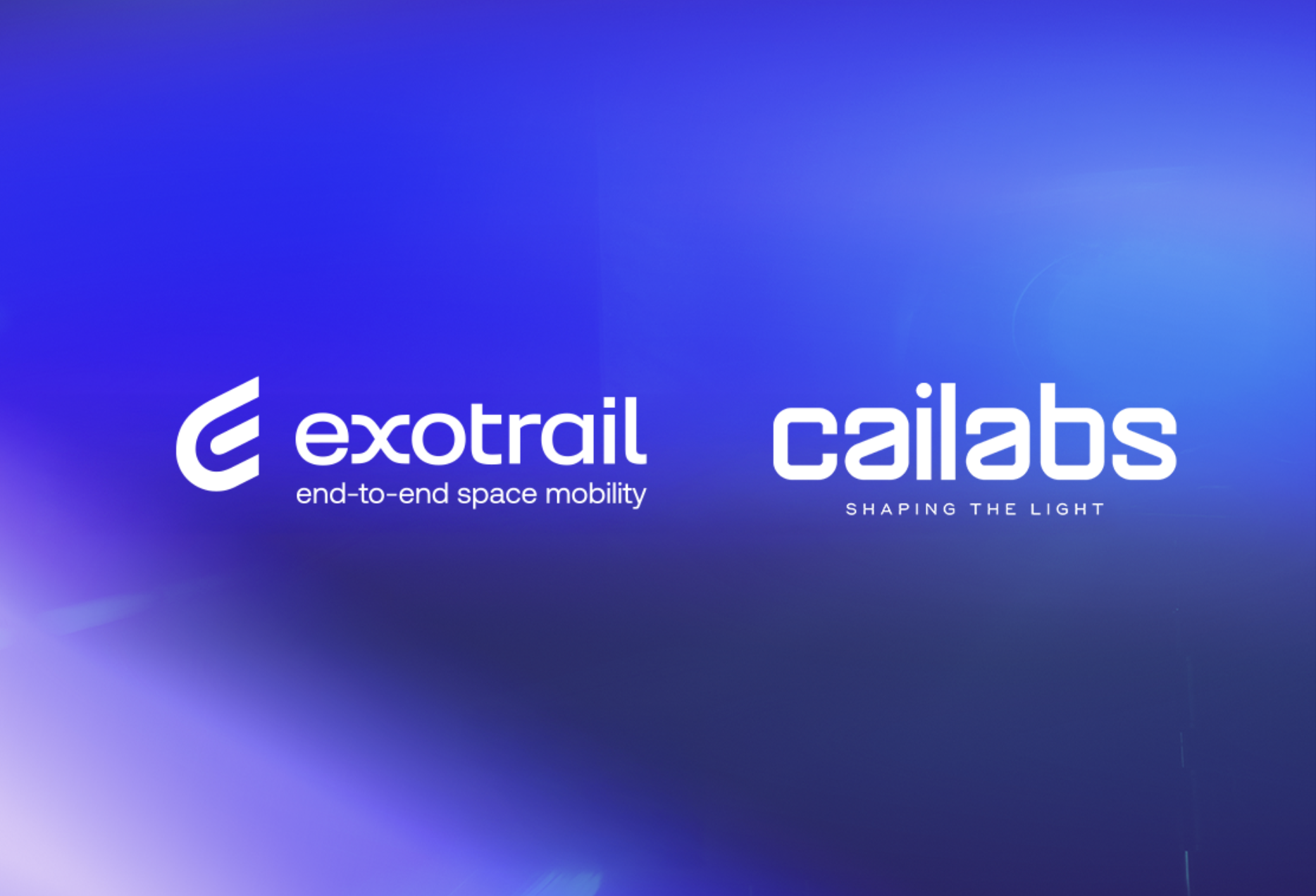Cailabs selects Exotrail’s spacevan™

French deeptech company Cailabs will fly Astrolight ATLAS-1 optical communications terminal onboard Exotrail’s spacevan™ mission in early 2026, leveraging the servicing vehicle as a hosted payload platform to extend its optical communication testing capacity in orbit.
Exotrail, a European leader in space mobility solutions, has signed a service contract with Rennes-based Cailabs to carry and operate ATLAS-1 communication payload onboard its upcoming spacevan™ mission. This mission, scheduled for launch in Q1 2026, is part of Exotrail’s expanding hosted payload program, which provides a flexible and cost-efficient alternative to full satellite missions for customers willing to showcase and mature their technology in orbit.
As part of this mission, Cailabs will embark the ATLAS-1 optical communication terminal, with the objective of expanding its space to ground communication testing capabilities and enhancing the performance and robustness of its optical links. This mission also serves as a precursor to the COROSSOL project, which aims to operate a network of optical ground stations. Cailabs is a pioneer in light shaping, using its patented Multi-Plane Light Conversion (MPLC) technology to enable robust, high-throughput optical communications, including laser links between ground and space assets.
spacevan™ is Exotrail’s versatile in-orbit servicing vehicle, designed not only for last-mile satellite deployment, but also as a multi-mission and multi-orbit platform. Using high-performance electric propulsion, agile avionics, and robust mission operations capabilities, spacevan™ enables in-space demonstrations, hosted payload missions, and responsive space operations. In its hosted payload configuration, it offers onboard technologies shared access to critical resources, including power, telemetry, thermal regulation, and attitude control—within a streamlined, flight-proven integration framework. This makes spacevan™ a cost-effective, low-barrier solution for testing, training.
ATLAS-1 is Astrolight’s first generation space-to-Earth laser communication terminal. The project passed its Critical Design Review with oversight from the European Space Agency, confirming that the system meets all mission and environmental requirements. ATLAS-1 aims to demonstrate high-speed, secure optical downlink from low Earth orbit. It is not only a move forward for Earth observation missions, but a step for secure and unjammable end-to-end space connectivity that still struggles with bandwidth bottlenecks. The compact terminal is designed to outperform traditional RF systems by leveraging the broader light spectrum and eliminating the need for frequency licensing, offering satellite operators a more efficient and scalable communication pathway.
Jean-Luc Maria, CEO of Exotrail, said: “We are thrilled to partner with Cailabs for this exciting mission. This is a perfect illustration of the value our spacevan™ platform brings to the European New Space ecosystem — accelerating access to orbit for cutting-edge technologies, while reducing barriers to in-orbit validation. We’re honoured to contribute to the success of another French space innovator.”
Jean-François Morizur, CEO of Cailabs, added: “Flying with Exotrail’s spacevan™ offers a great opportunity for us to extend our testing capabilities without having to build and operate a satellite ourselves. We have already conducted tests with various satellites and terminals and continuing to test our optical ground station—which mitigates atmospheric turbulence—with multiple configurations is key to guaranteeing full operability across diverse scenarios.”
Laurynas Mačiulis, CEO of Astrolight, added:
“ATLAS-1 was designed as a highly versatile platform – compact, modular, and easy to integrate into a wide range of satellite missions. That flexibility makes it suitable both for this demo and for scalable, real-world applications. We’re especially grateful to Cailabs for joining us to test the ATLAS-1 terminal. This collaboration brings us closer to unlocking operational space-to-Earth, Earth-to-space, and inter-satellite laser links.”